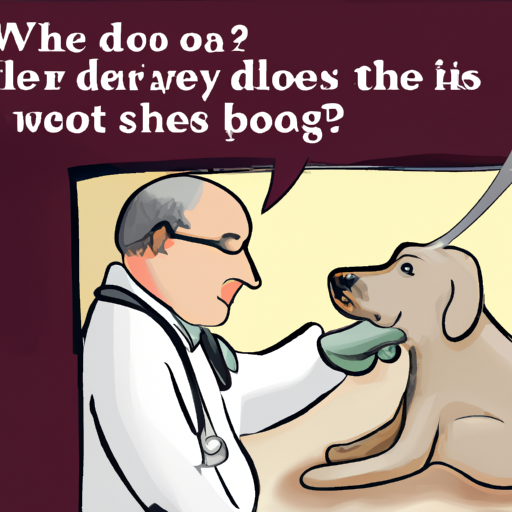Understanding the Canine Anatomy
Canines, like humans, have a complex vascular system. When a dog passes away, various physiological changes occur. This includes the cessation of blood circulation, which can lead to the accumulation of residual blood in certain body parts, such as the nose. This can eventually result in a nose bleed.
The Role of Coagulation
When your canine friend is alive, its body naturally prevents excessive bleeding through a process called coagulation. However, when the dog passes away, this process ceases to function, leading to uncontrolled bleeding. This is particularly noticeable in areas with a dense network of blood vessels, such as the nose.
| Coagulation Factor | Function |
|---|---|
| Platelets | Form a clot to block the bleeding site |
| Fibrin | Stabilizes the clot |
| Clotting factors | Initiate and control the clotting process |
The Connection to Illnesses
A nose bleed at the time of death could also be an indication of an underlying illness. Certain medical conditions, such as cancer, can cause bleeding. If your dog was suffering from such an illness, this could explain the nose bleed.
- Cancer: Certain types of cancers can lead to bleeding.
- Autoimmune disorders: These can cause blood clotting disorders.
- Infections: Certain infections can weaken blood vessel walls.
The Role of Trauma
In some cases, trauma might be the cause of a nose bleed at the time of death. This could be due to an accident or injury that occurred just before or during the dog’s passing.
- Falls
- Car accidents
- Fights with other animals
Caring for Your Departed Friend
As a caregiver, it’s essential to approach this situation with a calm and composed demeanor. Seeing your beloved pet in such a state can be distressing, but remember, the nose bleed is a natural process and not something that caused your pet pain or distress.
Frequently Asked Questions
Q: Can nose bleeds be prevented at the time of death?
A: No, nose bleeds at the time of death are a natural occurrence and cannot be prevented.
Q: Is a nose bleed a sign of suffering?
A: Not necessarily. While a nose bleed might indicate an underlying illness, it’s not a direct sign of pain or suffering.
Q: What should I do if my dog’s nose starts bleeding after death?
A: There’s no need for concern or action. However, if it distresses you, you could gently clean your pet’s nose with a soft, damp cloth.
Q: Can a nose bleed indicate the cause of death?
A: Not directly, but it might hint at an underlying condition that contributed to your dog’s passing. A vet can provide more accurate information.



